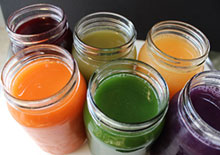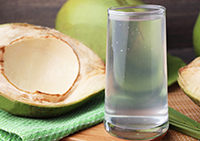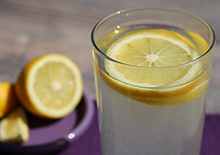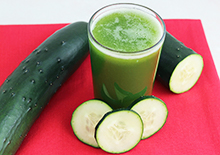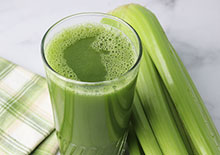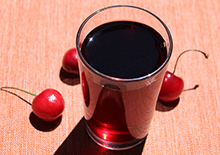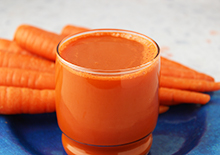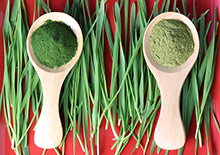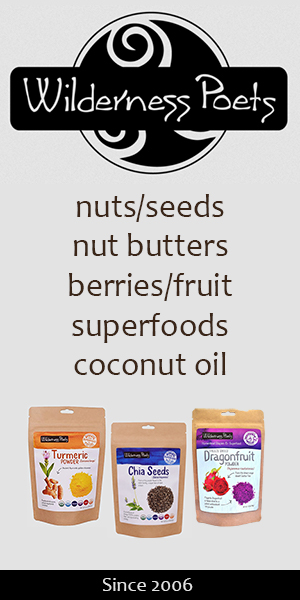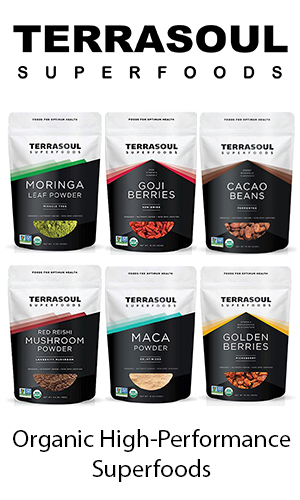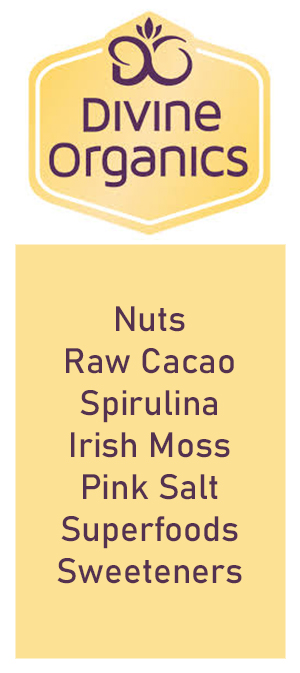- Home
- Super Juicing
- Types of Drinking Water
Types of Drinking Water, Which Is Our Favorite?
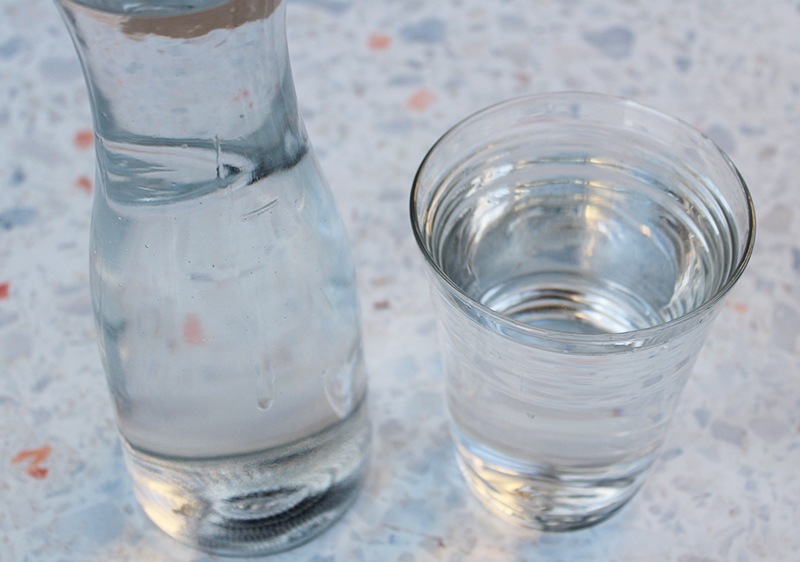
The importance of drinking enough water in your daily routine cannot be overemphasized. It is something each of us needs to ingest every single day for optimal health and well-being.
Today, many are realizing water quality does matter and not all sources are created equal.
Here we give a quick overview of the most popular types of drinking water, including our very favorite variety as well as why straight-up tap water is not something we recommend as a main source if at all.
Distilled Water
Distilled water is water that is steam distilled, usually by boiling it then condensing the vapor or "steam" and collecting the liquid this produces.
Water distillation by industry standards creates a very clean water type because it removes all minerals (or dissolved solids) and nearly all impurities.
Some health experts believe that using pure distilled water is the most beneficial when doing a water fast.
It's the best water to use for this purpose because it contains no mineral content whatsoever. It simply hydrates and moves through the body without involving normal digestive functions such as sorting out nutrient content or detoxifying contaminants.
Some downsides are that it doesn't of course contain electrolytes and can be more expensive because of production costs.
There are, however, some home techniques for making DIY distilled water on your stovetop. This can also be an option if you don't have access to clean drinking water or wish to remove the salt from seawater.
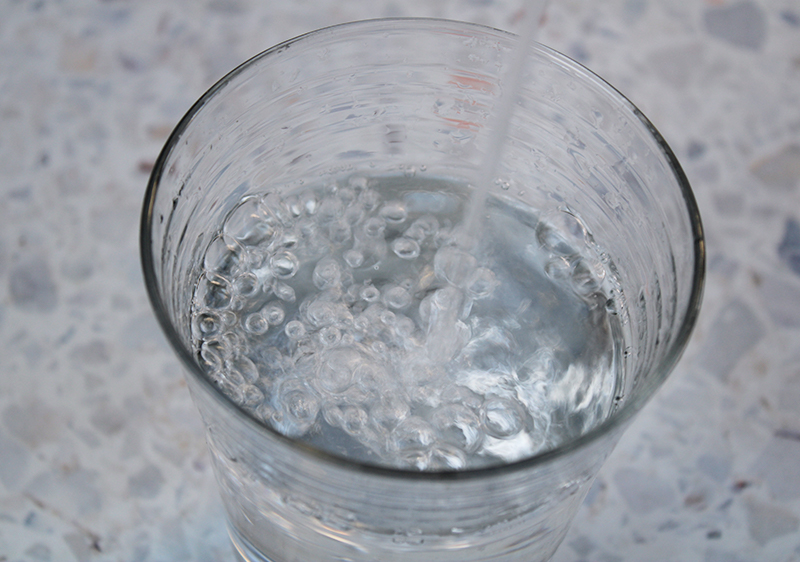
Spring Water
Spring water comes from natural springs that rise or levitate from underground sources. This kind of clay filtering process (via gravity and hydrostatic pressure) moves water in a vortex motion to exit points on the earth’s surface.
True spring water is not purchased from a store, although this is a secondary option. Real spring water is sourced directly from natural springs found in wild pristine environments.
On occasion, they can be conveniently located so you can fill up your 5-gallon glass or BPA-free water bottles, but often they require a little more effort via hiking or use of an off-road vehicle.
This is by far our very favorite type of drinking water, direct from wild nature!
It is believed to provide an energetic structure that is most supportive to deep cellular absorption and hydration when consumed.
While some may be concerned about the safety of just drinking water straight from a spring, it's not like river or lake water, which may contain unwanted organisms and toxins.
Spring water, sometimes referred to as "Artesian" or "mineral" water can vary in taste and quality depending on source locations. It is good to use a water testing kit if there is reason for concern.
Generally, however, properly sourced free-flowing spring water is naturally purified and full of essential minerals such as magnesium, calcium and silica. As a result, it has a lower pH and alkalinity.
We recommend the findaspring website, a rapidly growing resource created for locating cold and hot springs all over the planet.
Unfortunately, not all the gallon jugs you see at your local market labeled "spring water" are bottled at the source, unless indicated on the label. Most are transported to other facilities where they are further treated and filtered.

Alkaline Water
Alkaline water is a water variety that's highly marketed and thus becoming more popular these days among certain health seekers.
Typically, other water types, like tap water, are more acidic in nature and closer to a pH of 6 or 7. Alkaline water is known for its higher pH, usually between 8 or 9.
It is produced from an electrochemical method called electrolysis, in which the hydrogen and oxygen atoms are split to increase the pH.
The electrical current thus separates alkaline and acidic components, mainly calcium hydroxide and hydrochloric acid.
Calcium hydroxide is thus the main element that makes alkaline water ALKALINE. It is Generally Recognized as Safe by the FDA.
This water type can also be produced at home using a water ionizer.
Sometimes calcium and magnesium carbonates are added to bottled alkaline types instead of or in addition to using the electrolysis technique.
It’s usually a lot more expensive for production reasons.
Supporters of alkaline water consumption claim that using it helps restore optimal body pH, prevents things like bone loss and enhances physical activities.
We would say, yes, compared to drinking tap water, it can help offset high acidity levels; however, it’s not the best option in our opinion.
Likewise, drinking alkaline water as a main water source can cause stomach upset, muscle cramping and headaches for some individuals.
Again, spring water is our preferred lower pH alternative and a more naturally structured source of mineral content.
Tap Water
In comparison to several decades ago, most people in the modern world realize that using water straight from the tap is not a good idea.
By this we are talking about the direct municipal county water supply that is treated and largely unfiltered. This is a water source that comes direct from public utilities piped underground into your home and out of your kitchen or bathroom faucet.
It initially comes from raw fresh water sources such as rivers, lakes, reservoirs, or underground aquifers. In water-scarce environments, potable water is also reused from treated wastewater that is "purified" to set standards and added back to the existing supply.
Why do we consider tap water unsuitable as daily drinking water?
While this water may look "clean", it is treated with chemicals, like chlorine and chloramine, with the intent to kill off potential microorganisms.
It is also subject to the very common practice of water fluoridation (*), which is the controlled addition of fluoride to "help prevent tooth decay". Today, this regulation is under scrutiny by many health experts who consider it a dangerous neurotoxin associated with lower IQ, thyroid disorders and bone weakness.
This kind of public tap water is also unfiltered and notorious for heavy metal contamination, such as lead, arsenic, and aluminum, in addition to any number of pesticide, pharmaceutical and chemical residues. Although water treatment plants test for extreme levels, high amounts can accumulate in the body with long-term use and cause unwanted health issues.
Many also argue that this processed municipal water also lacks the life force that naturally structured water contains.
Purified Water
The blanket term "purified" is sometimes used to describe several kinds of treatments. This type of drinking water is not necessarily "filtered".
Remember that tap water is considered "purified" to make is suitable for human use but it isn't filtered to remove ALL contaminants.
This can be important when buying gallons or bottles of water for drinking purposes. It is good to make sure the brand you purchase is filtered and tested.
Purification technically refers to an additional step, often utilized with well water filtration techniques, to target the removal of other biological pollutants such as parasites, bacteria, viruses, fungi and algae.
There are different methods to purify water. As discussed, public water suppliers use chlorine, for example, whereas a more non-toxic alternative may include ultraviolet light or boiling methods.
Filtered Water
Filtered water is any type of water that goes through a physical filtration process to "filter" out specific impurities found in the tap water or well water it's sourced from.
Quality filters are efficient at removing things like heavy metals, chlorine and other inevitable toxic residues. There are many types using different processes from activated carbon filtration to reverse osmosis.
Filtration systems are the most practical choice for daily drinking and household needs.
Although a quality system can be somewhat expensive, installing one is definitely a worthy investment and ensures your household tap water (whether municipal or well water) is clean of contaminants.
Precautions:
When choosing your own types of drinking water, you may need to consider other factors. You may wish to discuss your main drinking water choices with a qualified health professional, especially if pregnant, nursing, or if you have a serious medical issue or are taking any medications.
